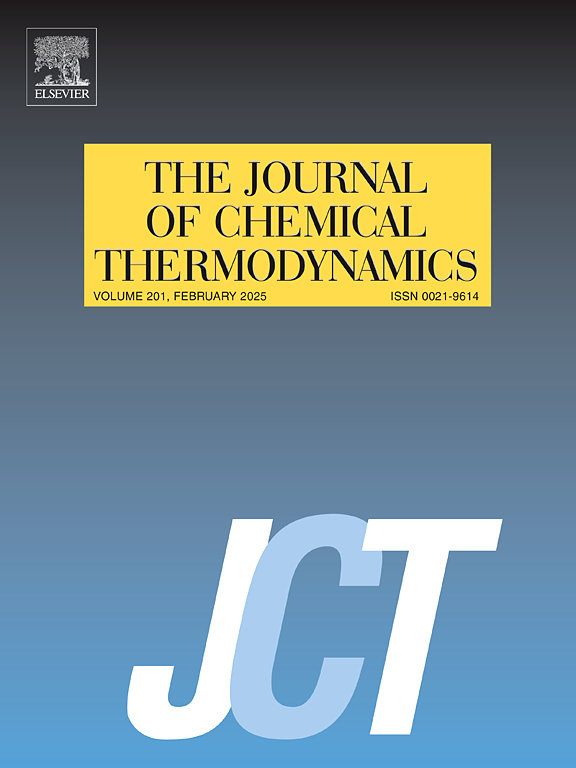Liquid-liquid equilibrium of systems containing acylglycerols from olive oil, glycerol and tert-butanol
IF 2.2
3区 工程技术
Q3 CHEMISTRY, PHYSICAL
引用次数: 0
Abstract
Studies indicate that consuming oils rich in diacylglycerol instead of triacylglycerol can prevent health problems commonly related to the consumption of fats, such as obesity and cardiovascular disease. For that reason, production and purification of diacylglycerol have received great attention. This work reports experimental results and thermodynamic modeling of liquid-liquid equilibrium of systems containing mono-, di-, and triacylclycerols from olive oil, glycerol and tert-butanol. UNIQUAC and NRTL models were used to calculate the phase equilibria and were well fitted to experimental data with root mean square deviations below 2 wt% for all studied systems. The results obtained in this work indicate the feasibility of diacylglycerol separation from other acylglycerols through liquid-liquid extraction using glycerol and tert-butanol as solvents.
含有橄榄油、甘油和叔丁醇的酰基甘油体系的液-液平衡
研究表明,食用富含二酰基甘油的油,而不是富含三酰基甘油的油,可以预防通常与脂肪消耗有关的健康问题,如肥胖和心血管疾病。因此,二酰基甘油的生产和提纯一直受到人们的高度重视。这项工作报告了橄榄油、甘油和叔丁醇中含有一、二、三酰基甘油的系统的实验结果和液-液平衡的热力学建模。UNIQUAC和NRTL模型用于计算相平衡,并与所有研究系统的实验数据很好地拟合,均方根偏差低于2 wt%。研究结果表明,以甘油和叔丁醇为溶剂,采用液-液萃取法分离二酰基甘油和其他酰基甘油是可行的。
本文章由计算机程序翻译,如有差异,请以英文原文为准。
求助全文
约1分钟内获得全文
求助全文
来源期刊

Journal of Chemical Thermodynamics
工程技术-热力学
CiteScore
5.60
自引率
15.40%
发文量
199
审稿时长
79 days
期刊介绍:
The Journal of Chemical Thermodynamics exists primarily for dissemination of significant new knowledge in experimental equilibrium thermodynamics and transport properties of chemical systems. The defining attributes of The Journal are the quality and relevance of the papers published.
The Journal publishes work relating to gases, liquids, solids, polymers, mixtures, solutions and interfaces. Studies on systems with variability, such as biological or bio-based materials, gas hydrates, among others, will also be considered provided these are well characterized and reproducible where possible. Experimental methods should be described in sufficient detail to allow critical assessment of the accuracy claimed.
Authors are encouraged to provide physical or chemical interpretations of the results. Articles can contain modelling sections providing representations of data or molecular insights into the properties or transformations studied. Theoretical papers on chemical thermodynamics using molecular theory or modelling are also considered.
The Journal welcomes review articles in the field of chemical thermodynamics but prospective authors should first consult one of the Editors concerning the suitability of the proposed review.
Contributions of a routine nature or reporting on uncharacterised materials are not accepted.
 求助内容:
求助内容: 应助结果提醒方式:
应助结果提醒方式:


